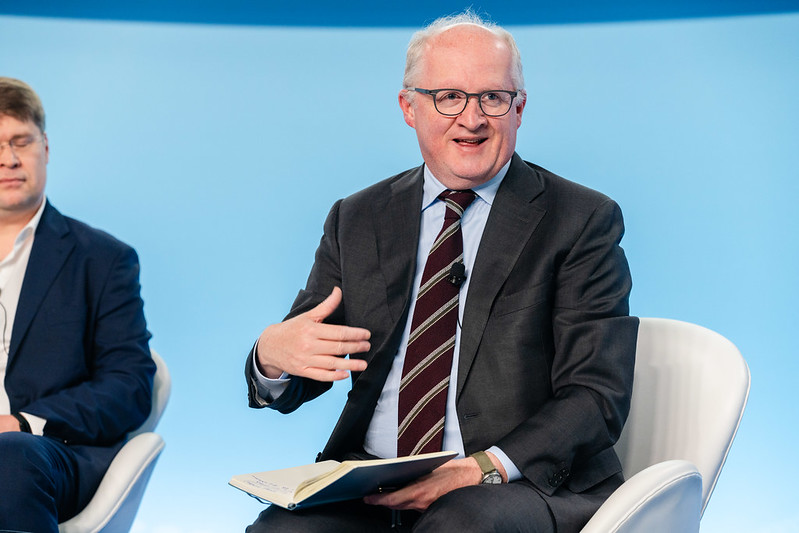ECB’s Lane: 50BP Cut Would Have Signalled No More Restrictiveness, Which We Did Via Communication
18 December 2024

By Marta Vilar – MADRID (Econostream) – European Central Bank Chief Economist Philip Lane suggested on Wednesday that the ECB did not go for a 50bp cut in December because the signal it would have sent with a large cut about no longer being restrictive it instead sent via the language.
Speaking at an MNI webcast, Lane said that ‘one argument for doing 50 was to signal we are no longer restrictive, but I think you can go a long way with just communication’.
The ECB's communication stated that the ECB would set monetary policy appropriately in order to reach the inflation target and ‘that is really clear’, Lane said.
‘In the context of the scale of easing in the forward curve, it takes out the drama of 25 vs 50’, he said. ‘Because it’s not essentially the last ever decision we are going to make.’
There had been a change in how the ECB understands the meeting-by-meeting approach, according to Lane.
‘The meeting-by-meeting in a world of uncertainty makes sense, but essentially what's feeding the input into that is not searching for restrictiveness. It’s going to be the risk assessment of what’s changed in the world’, he said.
In 2025 a great deal of the meeting-by-meeting approach would have to do with ‘what’s the next headache’, he indicated.
Backward-looking elements were now less crucial in the ECB's decision-making process, he said.
‘[M]aybe [we have gone] more back to a more standard situation where we are trying to anticipate future risks more than dealing with past problems’, he said.
Data-dependency was now going to be based on where new data points would be and how trade policies would look, not on how quickly underlying inflation would improve, according to Lane.
Regarding the neutral rate, he questioned whether the Eurozone would be able to live in a ‘neutral world’ in 2025.
Neutral meant ‘basically no shocks in an economy, you kind of settle down in a perfect steady state’, he said. ‘Is that the world we are going to face this year? Let’s see.’
Asked about the risk of a mild recession, Lane said, ‘I think we are quite far away from that’.
The baseline scenario for growth was that of a modest recovery compared to global peers, but ‘far away from recession dynamics’, he said.
Small changes in inflation readings were not going to trigger a response from the ECB, whose possible reaction would depend more on the persistence and the nature of those deviations, he said.
‘If inflation goes from 2.0% temporarily to high 1’s or low 2’s, that doesn’t necessarily require a monetary policy response’, he said.
The ECB still considered interest rates to be the most powerful and efficient tool, not the balance sheet, according to Lane.
‘When you get to the lower bound you don’t have another option and you do have to turn to the balance sheet to do it [ease further]’, he said. ‘But away from the lower bound I cannot come up with scenarios where we would think about that’.
Related articles:
- ECB’s Lane: Disinflation ‘Well on Track’, Monetary Policy Should ‘Maintain Agility’
- ECB’s Lane: To React Symmetrically to Undershooting and Overshooting
- ECB’s Lane: Should Continue to Refrain from Providing Guidance on Speed, Size of Cuts
